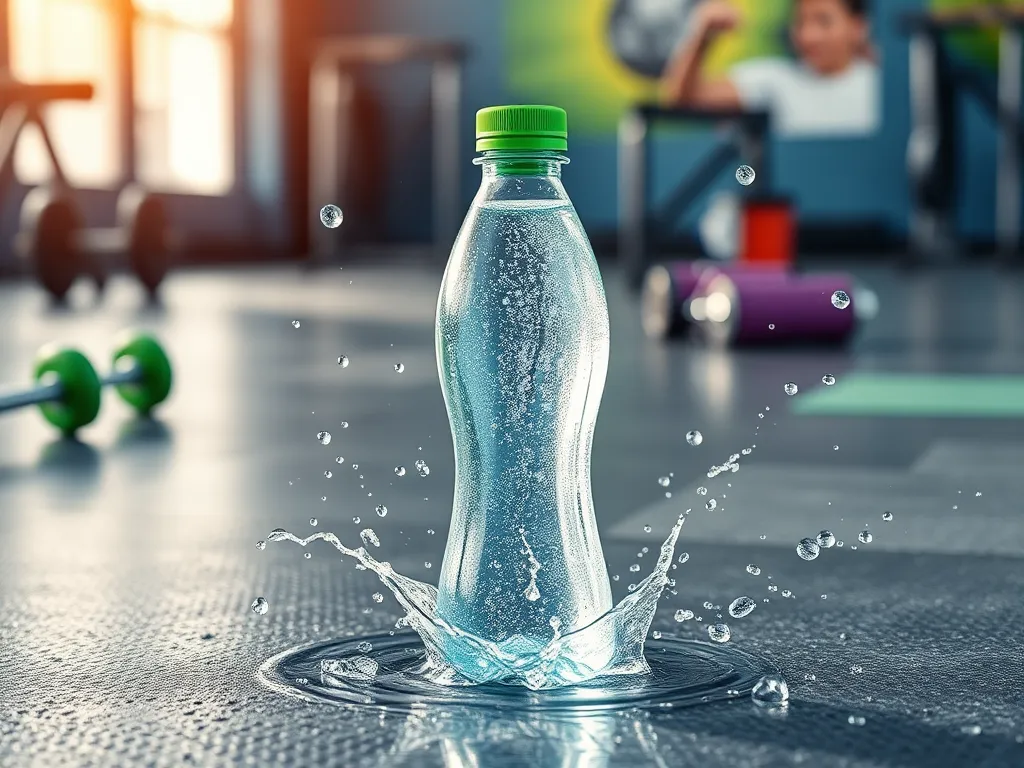Why Hydration Matters: Boosting Sports Performance Effectively

Hydration and Sports Performance
Hydration is a critical factor in the realm of sports performance, influencing everything from strength and endurance to recovery and overall athlete health. Maintaining an optimal level of hydration is essential for athletes to achieve peak performance during training and competitions. This article delves into the intricate relationship between hydration and sports performance, providing insights into its importance, strategies for effective hydration, and the underlying science of electrolytes.
The relationship between hydration and sports performance is underscored by the physiological effects of water and electrolytes on the body. Water is essential for various bodily functions including temperature regulation, joint lubrication, and nutrient transport. As athletes participate in intense physical activities, they lose fluids through sweat and respiration, underscoring the critical need for proper hydration. Without adequate fluid intake, athletes may experience a decline in performance, leading to fatigue and decreased physical ability.
Furthermore, dehydration can compromise cognitive function, resulting in impaired decision-making and coordination – critical components in highly competitive sports. Athletes involved in endurance sports or those competing in hot environments are particularly susceptible to water loss, making it crucial to establish effective hydration strategies tailored to their specific needs. Understanding the role of hydration is vital for athletes aiming to enhance their performance and reduce the risk of injury.
Proper hydration also plays a significant role in recovery, helping to prevent muscle cramps and fatigue post-exercise. Athletes must prioritize their hydration strategies not only before and during events but also in their recovery phases to ensure rapid and effective replenishment of lost fluids. This overview will examine the importance of hydration, effective strategies for athletes, the role of electrolytes, recovery techniques, and common myths associated with hydration in the arena of sports performance.
In conclusion, hydration is an essential pillar of sports performance that no athlete should overlook. By prioritizing hydration strategies, understanding the importance of electrolytes, and dispelling common myths, athletes can ensure they perform at their best and maintain their health. This comprehensive exploration of hydration's role in sports highlights the crucial interplay between staying hydrated and achieving athletic excellence.
The Importance of Hydration in Sports
Defining hydration is the first step to understanding its impact on sports performance. Hydration refers to the process of providing adequate fluids, primarily water, to the body to maintain optimal physiological function. Water makes up about 60% of body mass and is essential for virtually all bodily processes, including metabolism, digestion, temperature regulation, and physical activity. When athletes are well-hydrated, their bodies function optimally, allowing them to perform at higher levels.
One of the primary roles of fluids in the body is regulating body temperature. During physical activity, the body generates heat, which must be dissipated to maintain a stable internal temperature. Sweating is the body's primary cooling mechanism, and it requires sufficient hydration to be effective. Adequate fluid intake ensures that an athlete’s sweat production is sufficient to cool the body, ultimately enhancing performance.
The impact of dehydration on athletic performance is profound. Even a small loss of body weight (2% or more) can lead to significant declines in performance, affecting endurance, strength, and overall stamina. Athletes may experience symptoms such as dizziness, fatigue, headaches, and reduced coordination. Consequently, it’s essential for athletes to stay aware of their hydration levels before, during, and after physical activities.
Hydration Strategies for Athletes
To maximize performance, athletes should adopt optimal fluid intake strategies before, during, and after exercise. It is generally recommended for athletes to drink water consistently throughout the day to ensure adequate hydration status. Before competitions or intense training sessions, consuming 16-20 ounces of water or sports drink a few hours in advance can help minimize fluid loss during activity. During exercise, a fluid intake of 7-10 ounces every 10-20 minutes is advisable, depending on the intensity and duration of the workout.
Choosing the right beverage is also crucial, as not all hydration sources are equal. While water is essential for basic hydration, sports drinks that contain electrolytes can provide additional benefits during high-intensity or prolonged activities. These drinks help to replenish lost salts and minerals, while also providing carbohydrates for energy. Athletes should be educated on when to use sports drinks versus plain water to maximize their performance based on their individual needs.
Monitoring hydration status is vital for athletes. One effective method is to assess urine color. A well-hydrated individual’s urine will be pale yellow, while darker urine indicates dehydration. Athletes should adopt this simple strategy to gauge their hydration levels throughout training and competitions, adjusting fluid intake as needed to maintain optimal performance.
The Science of Electrolytes and Hydration
Electrolytes are minerals in the body that carry an electric charge and are essential for numerous physiological functions. Key electrolytes include sodium, potassium, magnesium, and calcium, which play critical roles in muscle contraction, nerve function, and hydration balance. As athletes sweat, they lose not only water but also vital electrolytes that must be replenished to maintain performance and health.
Replenishment strategies during prolonged activities often involve consuming sports drinks or electrolyte tablets to restore the lost minerals. The timing and quantity of replenishment should be tailored to the individual’s sweat rate and the intensity of their activity. Some athletes may need to assess their personal needs to develop an effective electrolyte replenishment plan that aligns with their training regimen.
An electrolyte imbalance can significantly affect athletic performance. Low sodium levels, for instance, can lead to muscle cramps, while insufficient potassium can result in fatigue. Understanding the science of electrolytes and recognizing the symptoms of imbalance is crucial for athletes seeking to optimize their training and performance outcomes.
Hydration and Recovery in Sports
The role of hydration in muscle recovery cannot be overstated. Proper hydration aids in the repair of damaged muscle tissue and improves the body’s overall recovery process post-exercise. When athletes are adequately hydrated, nutrients can be efficiently transported to the muscles, enhancing recovery and reducing downtime between training sessions.
Hydration tactics post-exercise may include rehydrating with water and electrolyte-rich beverages within 30 minutes of completing physical activity. This timely response is crucial in facilitating recovery and promoting an optimal balance of fluids and electrolytes. Athletes should aim to drink 16-24 ounces of fluid for every pound lost during exercise to ensure effective rehydration.
Moreover, hydration significantly impacts soreness and fatigue following physical exertion. Proper fluid intake can mitigate the severity of delayed onset muscle soreness (DOMS) and reduce fatigue levels, allowing athletes to return to training sooner and perform at their peak during subsequent workouts or competitions.
Myth-Busting Hydration in Sports
There are several common misconceptions about hydration that can lead to inadequate fluid intake and poor performance. A prevalent myth is that thirst is an adequate indicator of hydration status. While thirst can signal a need for fluids, it may not be an adequate warning until the body is already dehydrated. Athletes should proactively manage their hydration and not rely solely on thirst cues.
Another common myth pertains to caffeine and hydration. Many believe that consuming caffeinated beverages leads to dehydration. However, research shows that moderate caffeine intake does not significantly affect hydration levels for most individuals. Understanding the facts versus fiction regarding caffeine can help athletes make informed choices about their hydration strategies.
Lastly, hydration needs vary significantly among different types of athletes. Endurance athletes, for instance, have distinct hydration requirements compared to strength athletes or team sport players. Developing a tailored hydration plan that considers the athlete’s sport, duration of activity, and personal preference is essential for optimizing performance.
